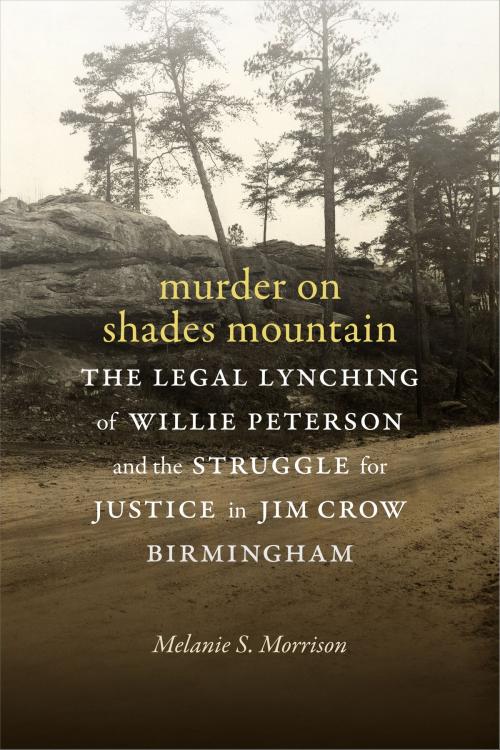Murder on Shades Mountain
The Legal Lynching of Willie Peterson and the Struggle for Justice in Jim Crow Birmingham
Nonfiction, Social & Cultural Studies, Social Science, Cultural Studies, African-American Studies, True Crime, Murder, History, Americas, United States, 20th Century| Author: | Melanie S. Morrison | ISBN: | 9780822371670 |
| Publisher: | Duke University Press | Publication: | March 15, 2018 |
| Imprint: | Duke University Press Books | Language: | English |
| Author: | Melanie S. Morrison |
| ISBN: | 9780822371670 |
| Publisher: | Duke University Press |
| Publication: | March 15, 2018 |
| Imprint: | Duke University Press Books |
| Language: | English |
One August night in 1931, on a secluded mountain ridge overlooking Birmingham, Alabama, three young white women were brutally attacked. The sole survivor, Nell Williams, age eighteen, said a black man had held the women captive for four hours before shooting them and disappearing into the woods. That same night, a reign of terror was unleashed on Birmingham's black community: black businesses were set ablaze, posses of armed white men roamed the streets, and dozens of black men were arrested in the largest manhunt in Jefferson County history. Weeks later, Nell identified Willie Peterson as the attacker who killed her sister Augusta and their friend Jennie Wood. With the exception of being black, Peterson bore little resemblance to the description Nell gave the police. An all-white jury convicted Peterson of murder and sentenced him to death.
In Murder on Shades Mountain Melanie S. Morrison tells the gripping and tragic story of the attack and its aftermath—events that shook Birmingham to its core. Having first heard the story from her father—who dated Nell's youngest sister when he was a teenager—Morrison scoured the historical archives and documented the black-led campaigns that sought to overturn Peterson's unjust conviction, spearheaded by the NAACP and the Communist Party. The travesty of justice suffered by Peterson reveals how the judicial system could function as a lynch mob in the Jim Crow South. Murder on Shades Mountain also sheds new light on the struggle for justice in Depression-era Birmingham. This riveting narrative is a testament to the courageous predecessors of present-day movements that demand an end to racial profiling, police brutality, and the criminalization of black men.
One August night in 1931, on a secluded mountain ridge overlooking Birmingham, Alabama, three young white women were brutally attacked. The sole survivor, Nell Williams, age eighteen, said a black man had held the women captive for four hours before shooting them and disappearing into the woods. That same night, a reign of terror was unleashed on Birmingham's black community: black businesses were set ablaze, posses of armed white men roamed the streets, and dozens of black men were arrested in the largest manhunt in Jefferson County history. Weeks later, Nell identified Willie Peterson as the attacker who killed her sister Augusta and their friend Jennie Wood. With the exception of being black, Peterson bore little resemblance to the description Nell gave the police. An all-white jury convicted Peterson of murder and sentenced him to death.
In Murder on Shades Mountain Melanie S. Morrison tells the gripping and tragic story of the attack and its aftermath—events that shook Birmingham to its core. Having first heard the story from her father—who dated Nell's youngest sister when he was a teenager—Morrison scoured the historical archives and documented the black-led campaigns that sought to overturn Peterson's unjust conviction, spearheaded by the NAACP and the Communist Party. The travesty of justice suffered by Peterson reveals how the judicial system could function as a lynch mob in the Jim Crow South. Murder on Shades Mountain also sheds new light on the struggle for justice in Depression-era Birmingham. This riveting narrative is a testament to the courageous predecessors of present-day movements that demand an end to racial profiling, police brutality, and the criminalization of black men.















